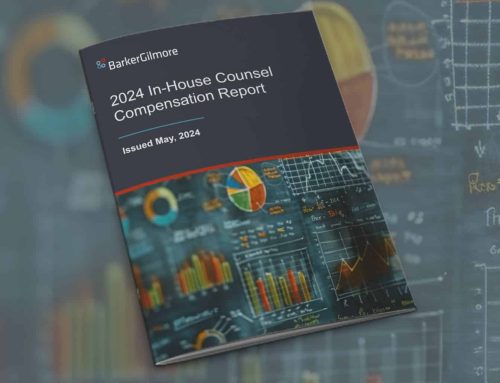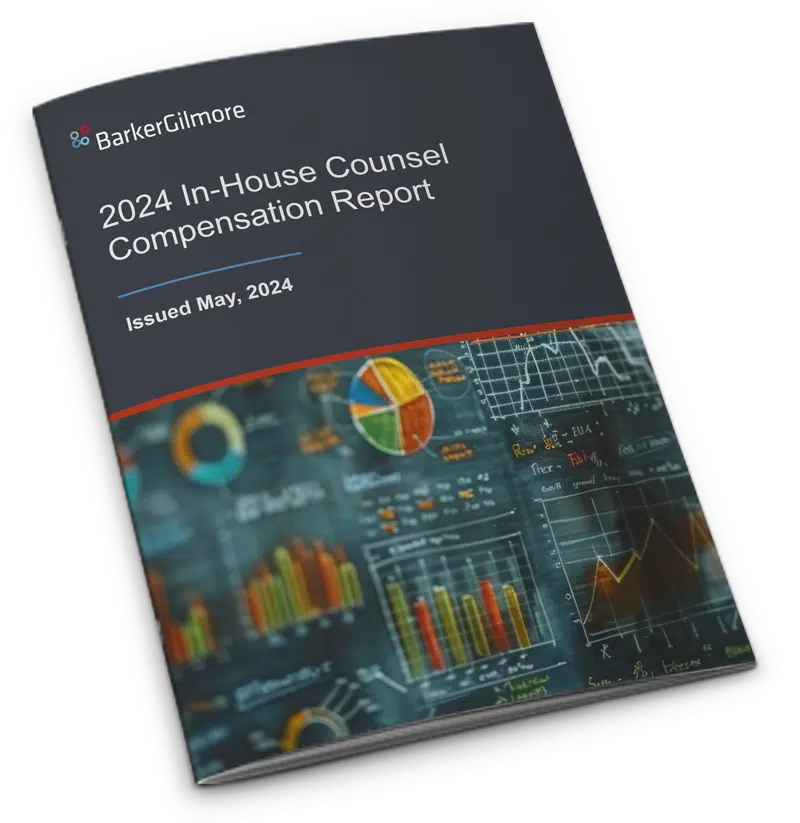Law360 (January 1, 2019, 12:03 PM EST) — The total amount reflected in many general counsel paychecks has climbed in recent years thanks to complex regulatory environments and the evolving role of the top corporate lawyer, and that trend is only expected to continue in 2019.
GCs across industries are being asked to do more, and their position has expanded beyond the traditional legal, compliance and governance functions to more broadly take on additional roles and apply legal issues in a larger business context, embrace risk, and collaborate seamlessly with the executive team. More so now than in the past, CEOs expect their in-house leaders to be persuasive communicators and fully integrated into the business.
Increasingly complex issues that require superior in-house counsel — including new regulations and emerging technologies — are a major underlying factor affecting general counsel compensation, experts say. Corporations dealing with ongoing litigation or antitrust issues, for instance, are often willing to pay more for an in-house leader than a business without either of those situations.
Organizations realize it’s beneficial to pay for GCs who have gathered the skills to strategically deal with these issues, said Susanna McDonald, vice president and chief legal officer of the Association of Corporate Counsel.
“Their primary role in being the strategic partner is being the risk manager,” McDonald said. “These risks are just getting greater and greater every year, so you have to have somebody who can really truly do that work.”
Rachel Newman, global head of RPN Executive Search LLC’s in-house practice who recruits in a variety of industries, said companies often approach her looking for a general counsel candidate who is a strong technical lawyer, boardroom powerhouse and true leader.
“Companies are finding that shooting for the moon is not as far-fetched as it once was,” she said. “They are willing to pay for the full-package attorney. The GC candidate who checks every box is the ultimate beneficiary.”
A lawyer’s tenure at a company and overall experience as in-house counsel also influence pay. For example, GCs who had been at their organizations for 16 to 20 years cited average compensation of more than $600,000 — compared to $300,000 for the top lawyers who had been at their companies for a maximum of a year, according to the ACC Global Compensation 2018 Report published in July.
Whether a company is public or private can also play a role in corporate lawyers’ pay. GCs at public companies earn an average salary of $294,000 and average bonus of $178,000, while those at private organizations take home an average salary of $207,000 and average bonus of $72,000, according to the ACC Global Compensation Report.
The report identified the top-paying industries for GCs and chief legal officers as biotechnology and life sciences; technical research and development; accommodation and food services; agriculture, forestry, fishing and hunting; and fast-moving consumer goods and services.
Meanwhile, the BarkerGilmore 2018 In-House Counsel Compensation Report of nearly 2,000 in-house counsel released in May found slight differences in the industries. The highest-paying industries at the general counsel level were industrial and manufacturing, financial, and technology for publicly traded companies, and financial, energy, and technology for private businesses. The lowest-paying were professional services for both types of companies, according to the report.
Experts agree the type of industry can dictate a general counsel’s pay, but there are exceptions, as John Gilmore, co-founder and managing partner at BarkerGilmore, acknowledged.
“There are companies out there that are outperforming others and have higher, more complex issues. They need somebody in that seat who can deal with all of that, and they’re willing to pay for it,” he said. “The reality is, it’s driven by the individual company and not by the industry that they’re in.”
Typically, experts say, a public company general counsel managing a large legal team has a more significant pay package than a lawyer in a similar position but with a smaller department at a private organization. But salaries at both types of businesses should be on the rise, given the in-house leader’s evolving role, Newman said.
Equilar Inc. & BarkerGilmore LLC’s General Counsel Pay Trends 2018 report examined the compensation of the top lawyers at the 500 largest U.S.-headquartered companies by reported revenue that trade on the Nasdaq, NYSE or NYSE American. The median total compensation of GCs at Equilar 500 companies, categorized into four groups by annual revenue, increased substantially between 2016 and 2017, except for one revenue bucket.
The analysis, published in October, found that general counsel at companies with less than $5 billion in revenue received the biggest percentage increase — 21.8 percent from fiscal years 2016 to 2017, or a median $2 million in total compensation. In contrast, the top lawyers at companies reporting $5 billion to $10 billion in revenue experienced a 3.3 percent decrease in total compensation to $2 million.
The ACC’s compensation report didn’t find law department size as a predictable pay determinant. While it acknowledged there are differences between the smallest and largest departments, it showed that the largest mean salary categories were between 100 and 149 employees, at $388,000, and 25 to 49 employees, at $353,000.
Meanwhile, the smallest category, one employee, had a salary mean of $174,000, while the largest category, 150 to 199 employees, had a mean of $308,000, the report said.
Besides the pay level, another outcome resulting from a legal department’s enhanced duties is growth to lawyers’ external worth, if they choose to explore similar positions elsewhere.
“Not only do I advise my current GC candidates who are looking for a better role to expose themselves to as broad an experience as possible at their current companies to make them more marketable,” Newman said, “but I also counsel attorneys who are not quite at the GC level to choose a role as expansive as possible to best position themselves for a GC role down the road.”
–Editing by Rebecca Flanagan and Alanna Weissman.
Connect with a legal recruiting advisor
* indicates required fields






